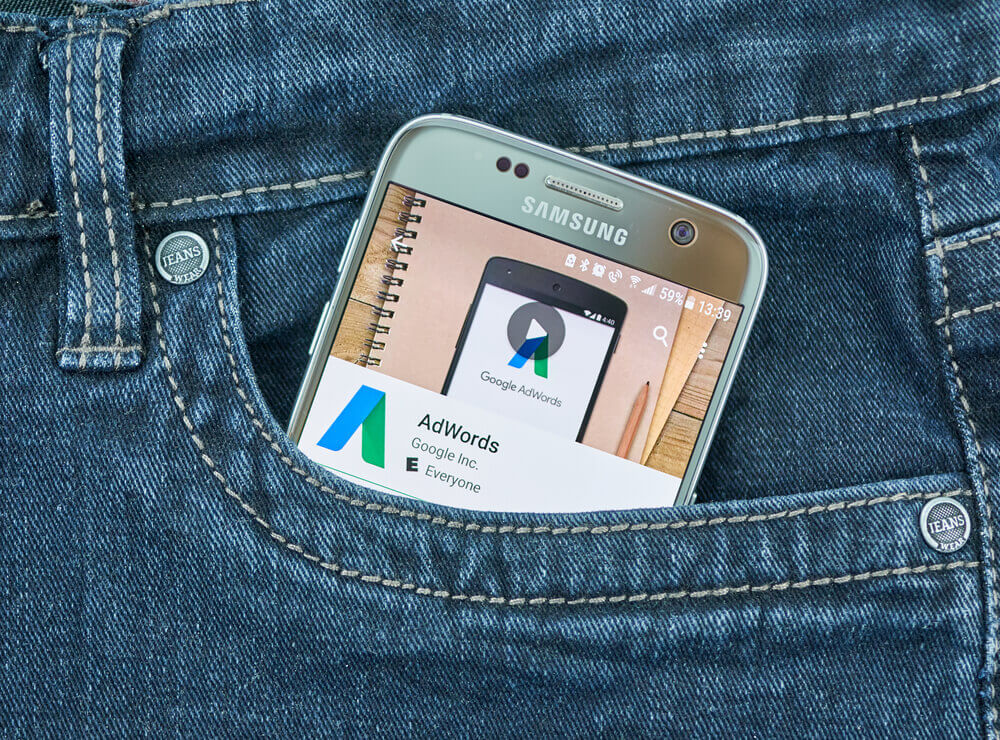AdWords campaigns are a great deal about keywords. After all, search terms introduced by searchers are the cause that will trigger your ads. Choosing the right words will assure the right people find your ads at the right moment. If those ads are good and provide an effective answer to the search, you will get more and more clicks.
As simple as this may sound, doing a good use of your keywords is actually one of the biggest challenges any online store willing to advertise on Google (or Bing, or Yahoo! for that matter) will encounter.
Today, we will provide five simple tips that will turn this monumental task into a much simpler job.
Finding Good Keywords Requires Insight and Research.
Choosing keywords is an art, and mastering it takes time and practice. However, a good piece of advice would be to put yourself in the shoes of your customers and think like they would. What would you type into Google if you were looking for your products? That’s your first keyword.
You may use your own site as an inspiration. Browse through your product collections and think of ways in which you would search for those products should you be interested in purchasing one of them.
Be careful not to use too general terms. One-word terms are usually too general; you should rather turn to multiple worded keywords. You should also try to avoid the temptation to use keywords that have a very large search volume, as they will either generate useless clicks (that will cost you money) or will reduce the quality score of your campaign. Or both. Also, if you are running on a low budget, don’t use the name of your store as a keyword, as chances are it will rank among the first results if people do a Google Search, and they will find it anyway.
Sort your Keywords into Ad Groups.
Ad Groups are the categories into which AdWords allow you to sort your ads and, hence, your keywords. Divide your keywords into different groups, for example:
Keywords a potential customer researching a product category would use (if you sold mobile phone cases, such users would be searching “how to protect my cell phone”, for example).
Keywords someone who is looking for your specific product would use (“cell phone cases”)
Keywords someone who’s decided for a particular model you just happen to sell would use (“zebra iphone case”).
You could also group your keywords by collection of products differentiating those relating to certain products, colors or brands.
Use Negative Keywords.
A great way to maximize your ROI and make sure that every click on your ads count is by letting AdWords know which keywords should categorically never be associated to your ads. An easy and obvious example: You are running an E-commerce, so you are most likely not giving stuff away for free, so anyone visiting your store looking for whatever you sell for free is clearly wasting his time (and your money), so why not add ‘free’ to your negative keyword list?
Adding negative keywords is easy. Within your AdWords accounts just go to the Keywords Tab, scroll all the way to the bottom of the page, and you will find the “Add Negative Keywords” option.
Some Tools can make the Job Easier.
There are a few tools that will make gathering keywords a much easier and enjoyable task (if that is even possible).
You may try Google’s Keyword Tool, which will allow you to provide a list of keywords and find related keywords, or to generate new words. These words will allow you to check their search volume, meaning how many people actually look for them, and how much competition there is for it. An ideal keyword would have a high search volume and low or medium competition.
Google has also recently introduced the Keyword Planner, which is far more powerful than the Keyword Tool, as it doesn’t just suggest keywords, but rather goes one step beyond and groups them into Ad Groups, plus estimating the campaign’s overall performance.
However, trusting these tools blindly will not produce great results, and they are not optimized for E-commerce. You must do a lot of filtering and optimizing of the results they deliver; but they are a good way to begin when you need inspiration and a head start for your campaign.
Test and Optimize.
Creating a campaign is just the first step. Once it’s set up you must constantly pay attention to it. Go back to your keywords lists and check which are working better, which are producing more clicks and which are not producing any results at all.
Successful campaigns require constant optimization, so relaxing and just letting things run are never an option.
If you wish to receive more tips and advice on how to run successful ad campaigns for your Online Store click here and subscribe to our amazing newsletter and get a Free White Paper on how to get started with Google AdWords.


